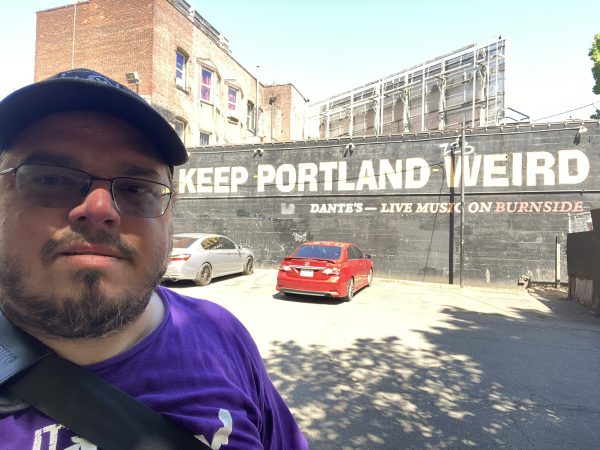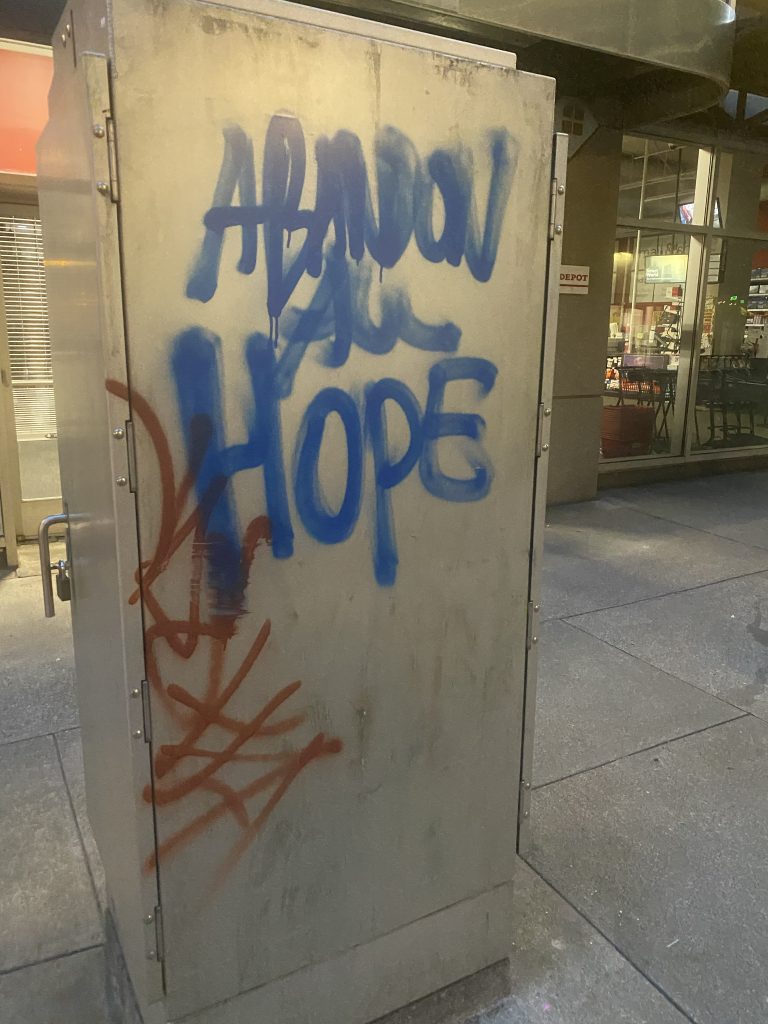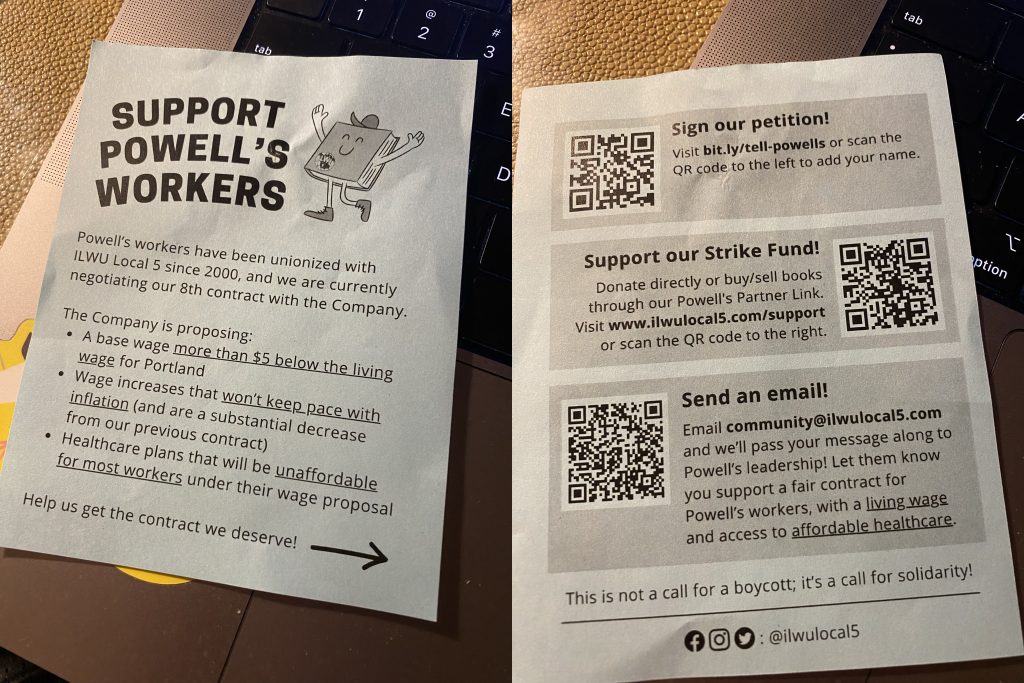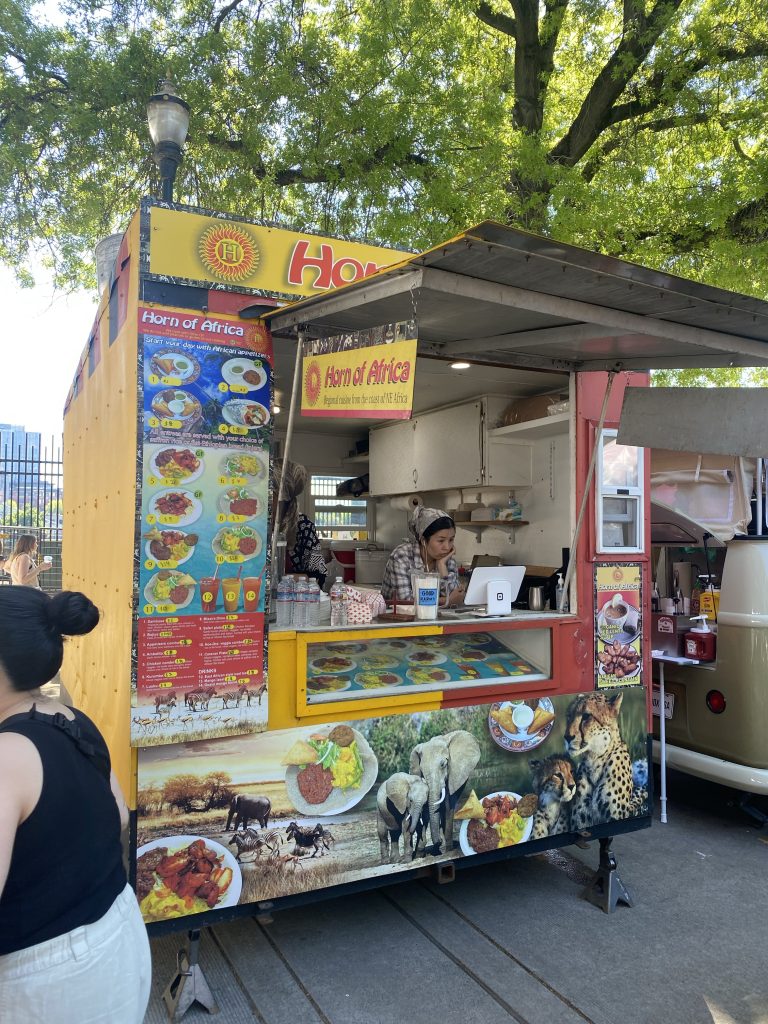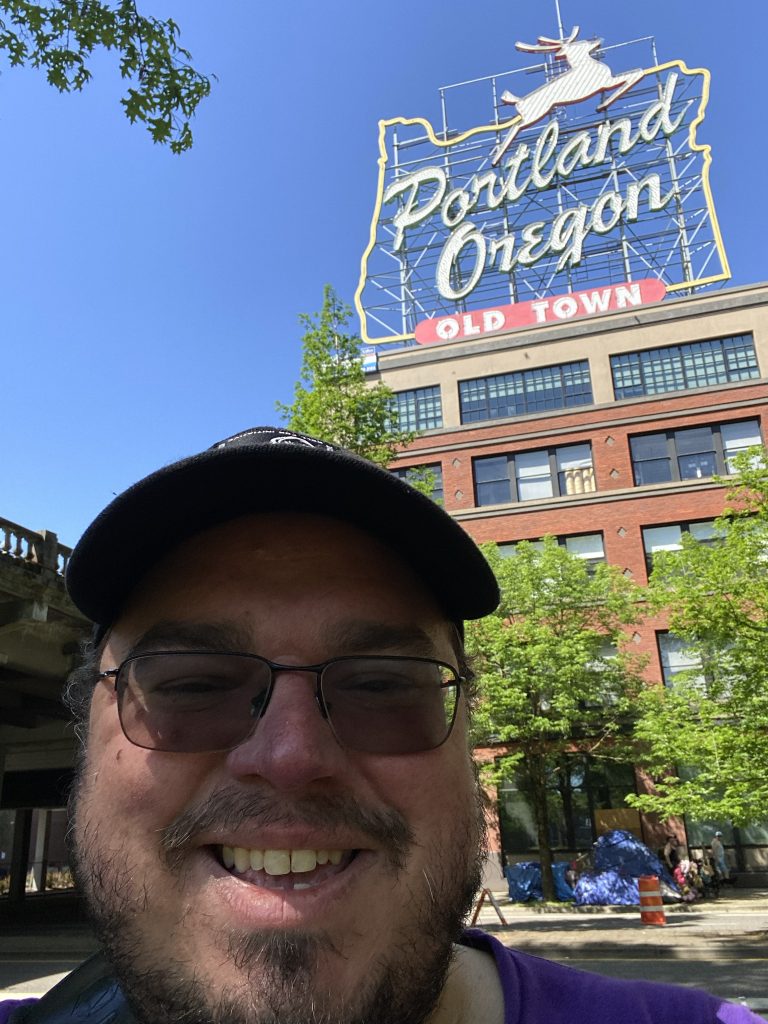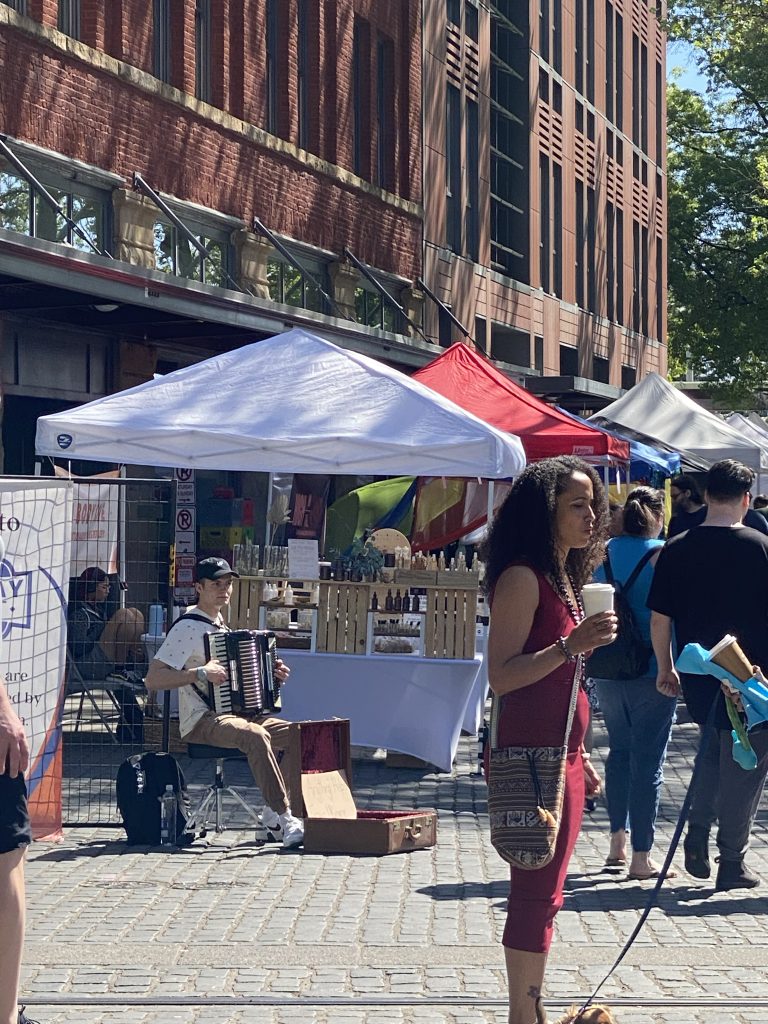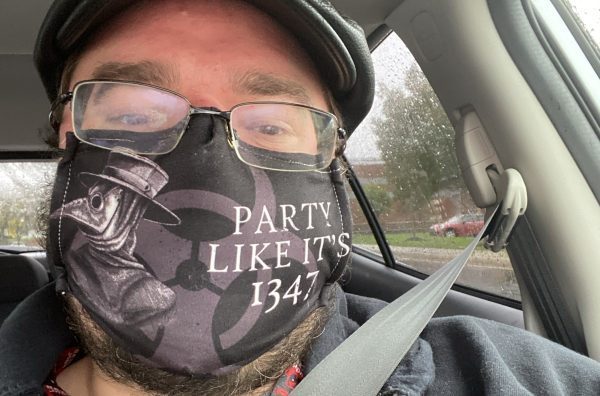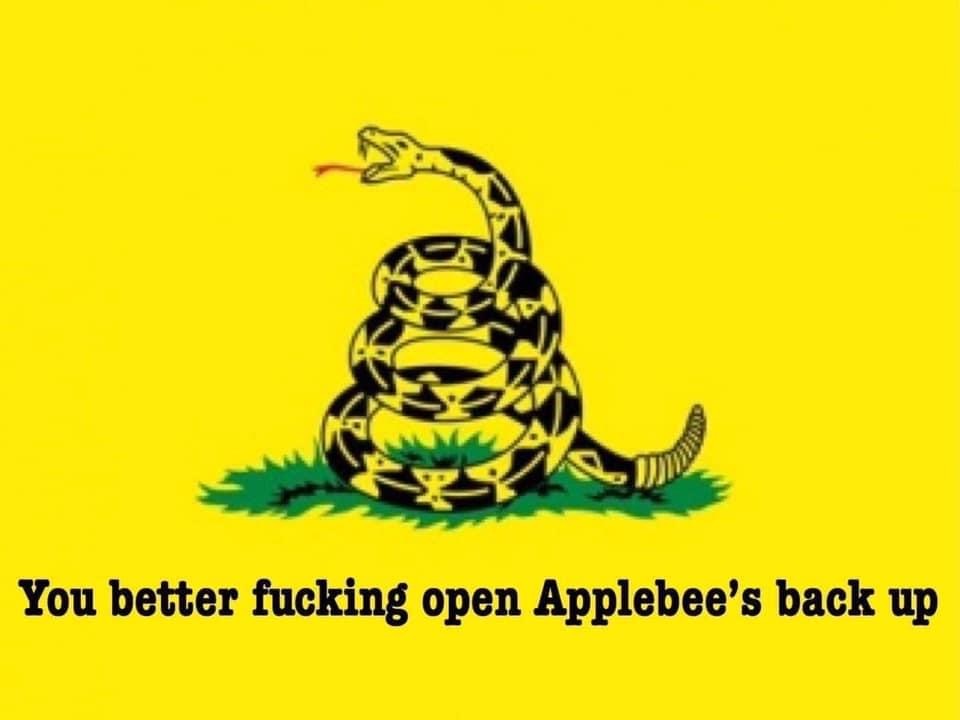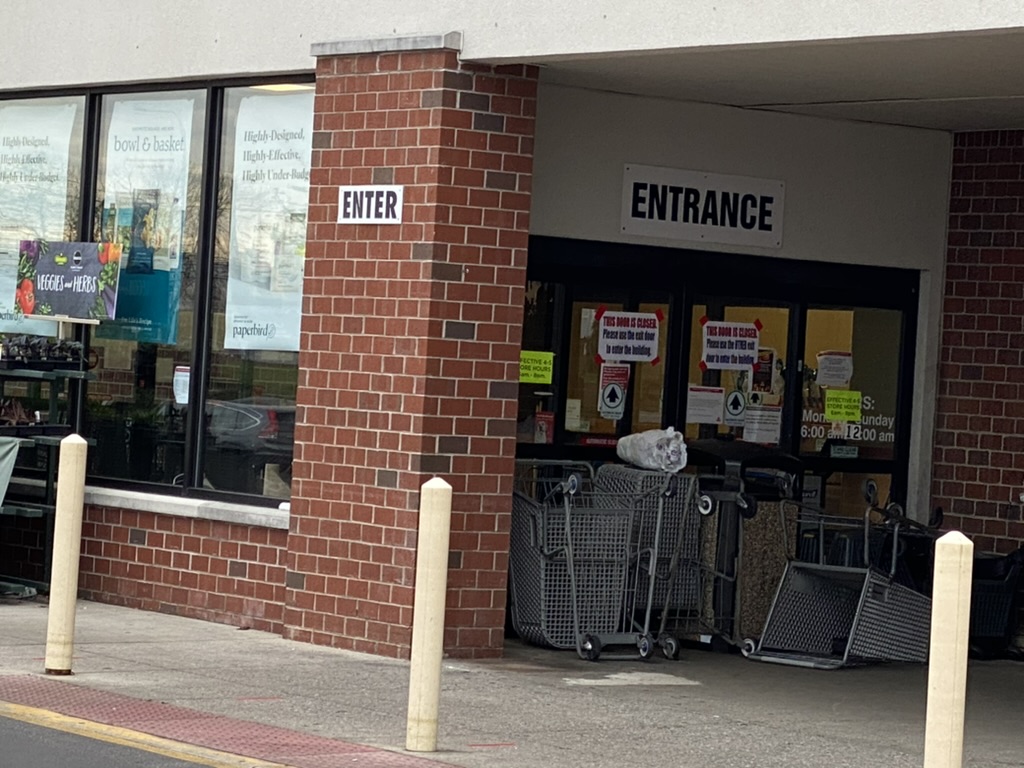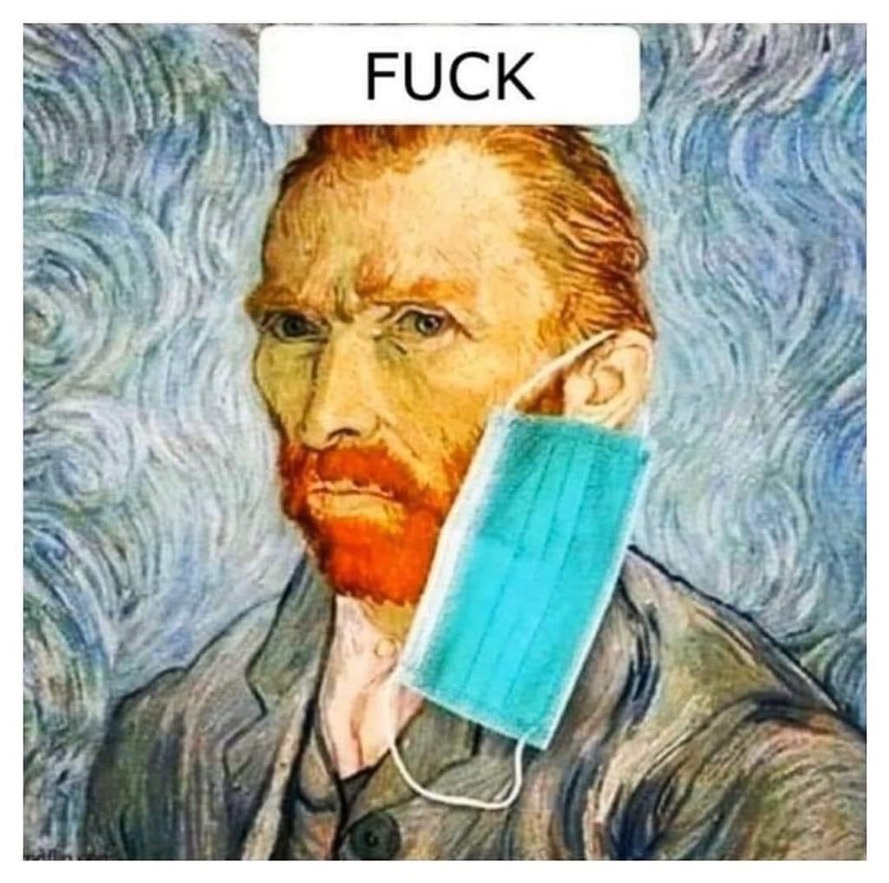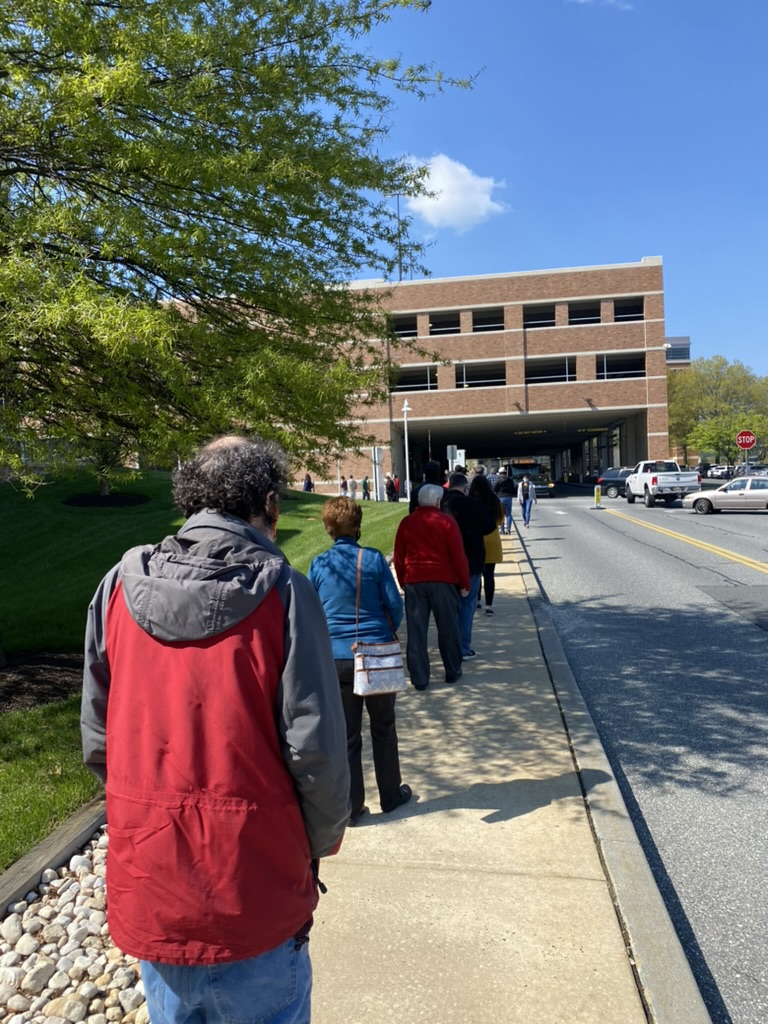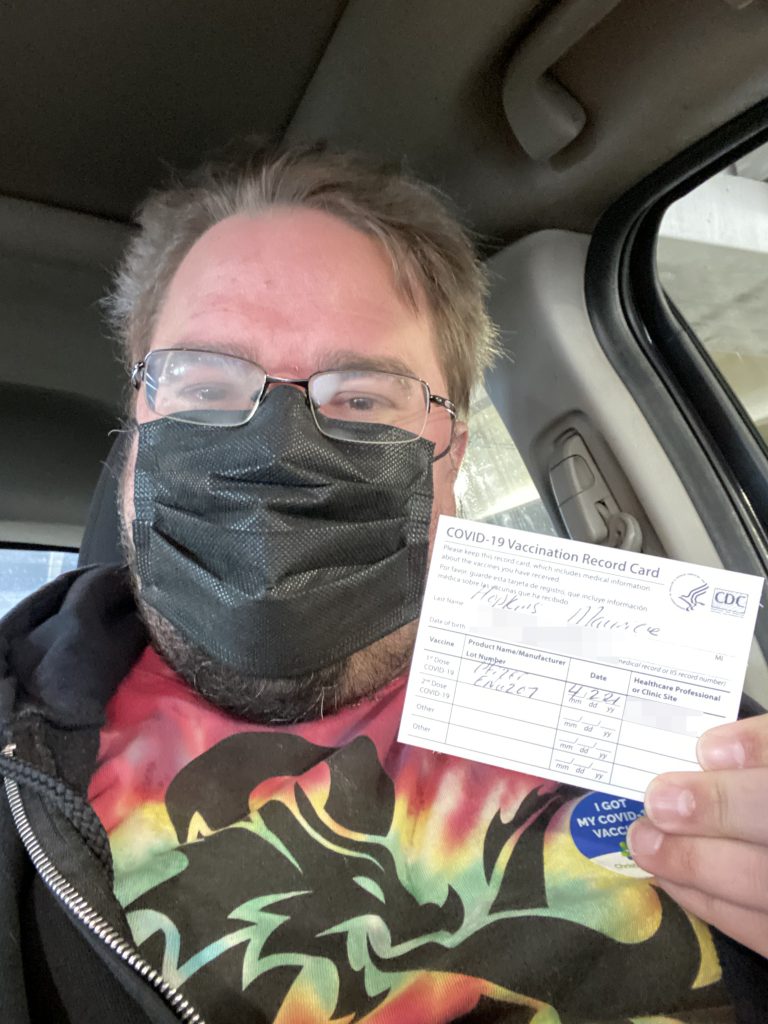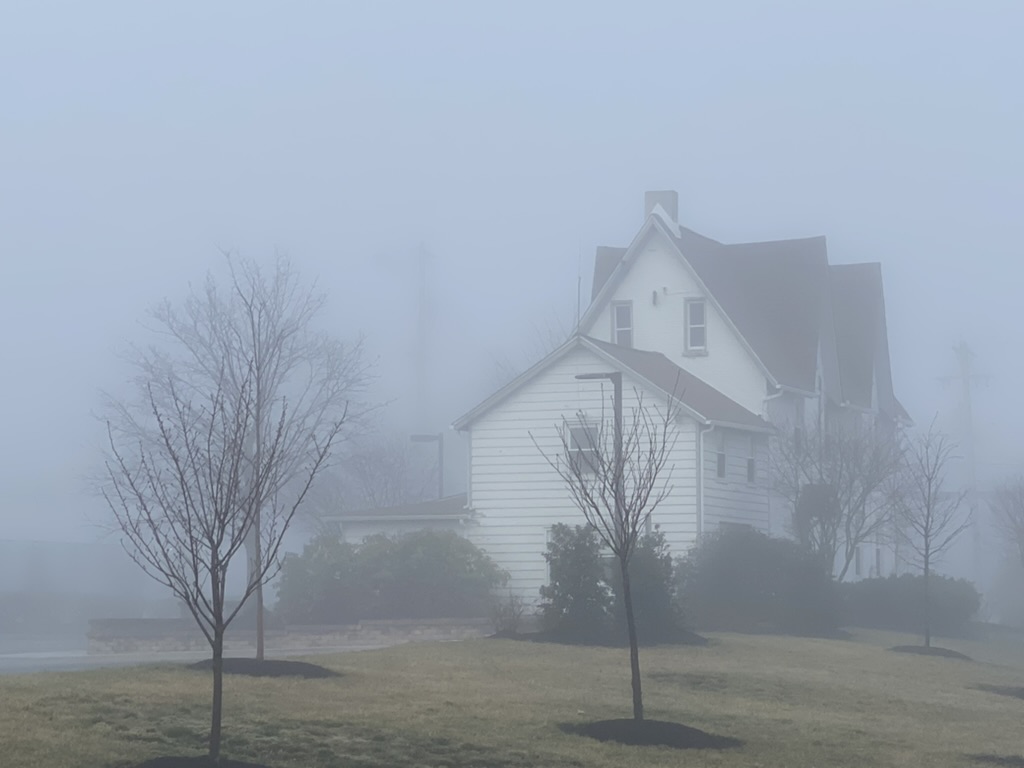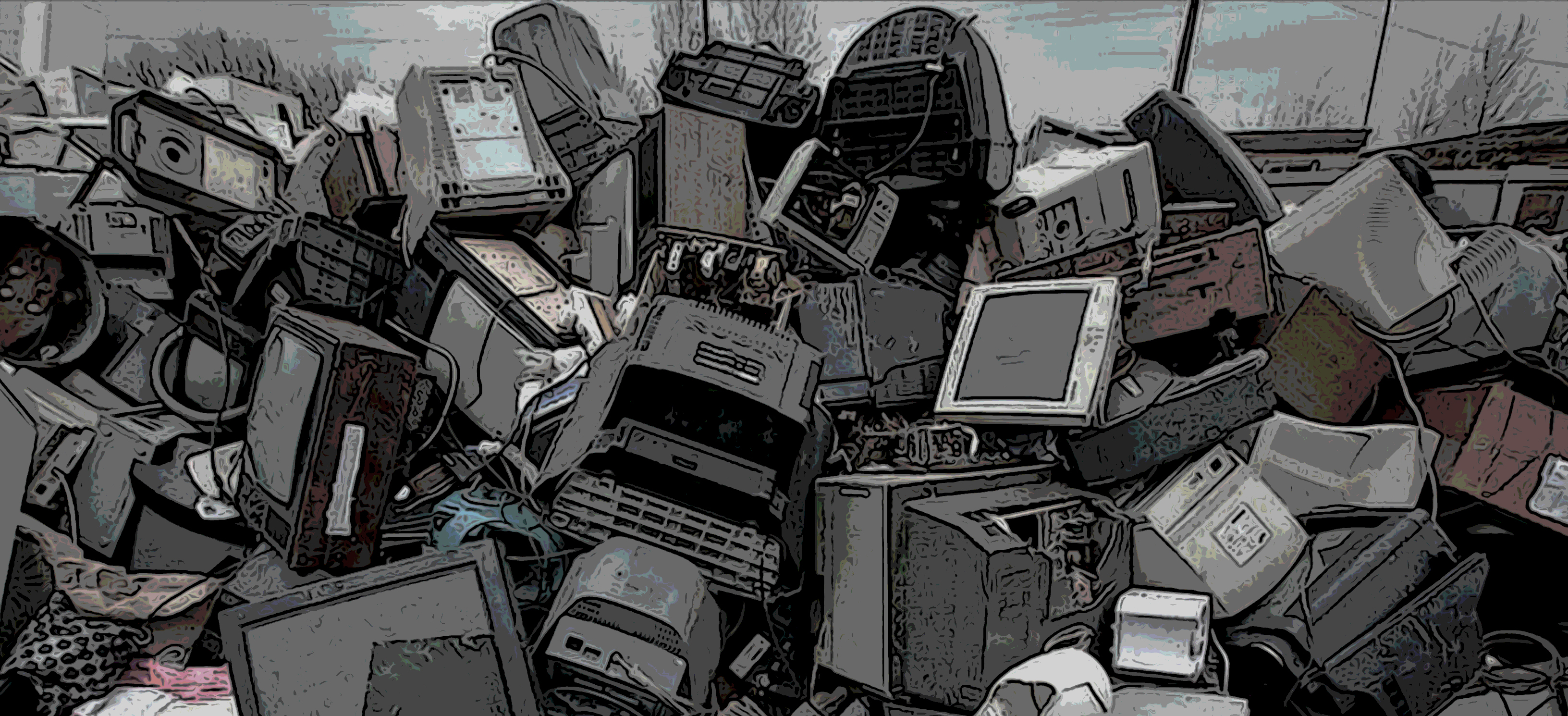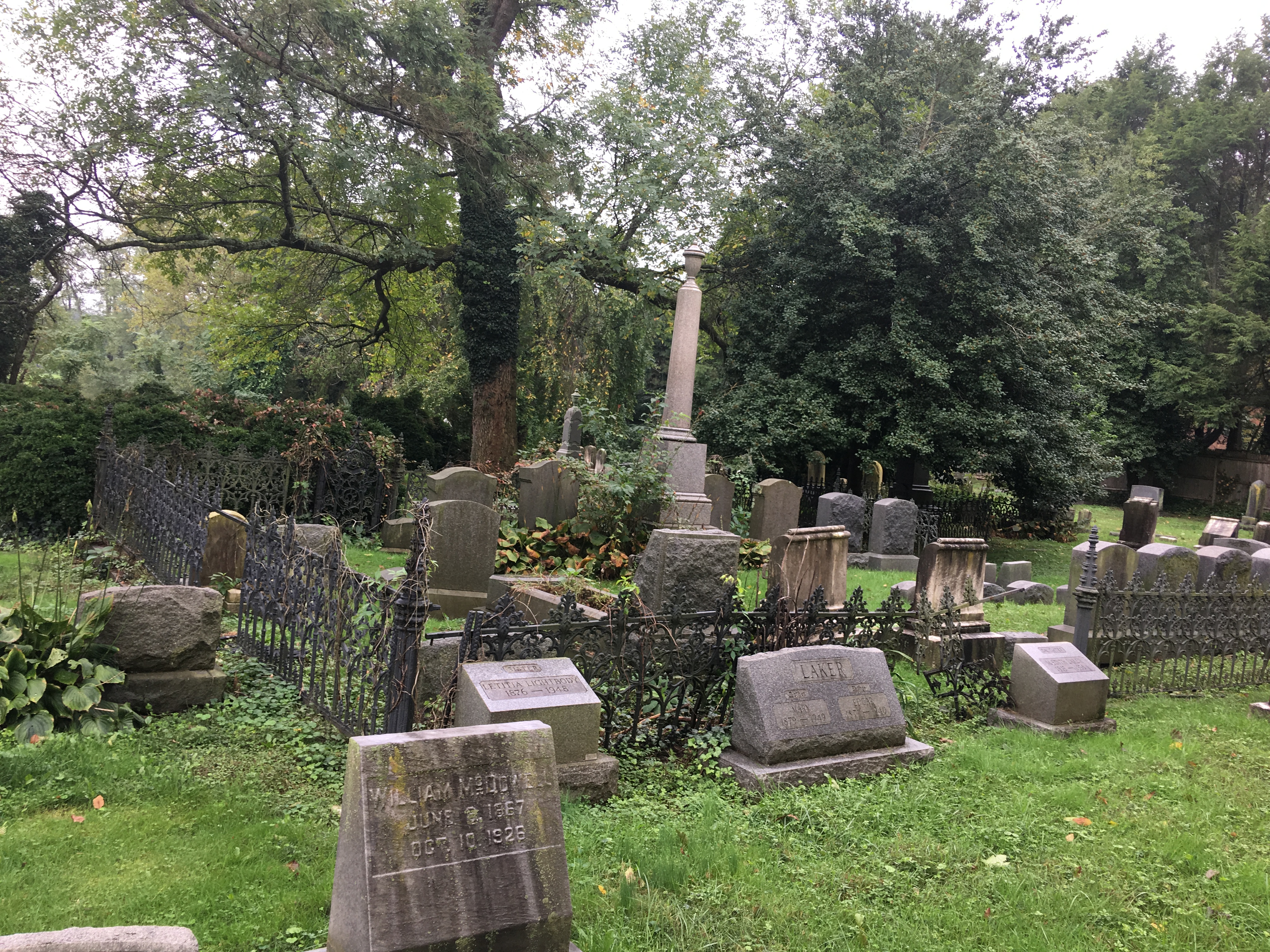So, I wanted to go to Oregon for years because of elves.
Okay. That makes no sense without some context. When FASA released Shadowrun in 1989, part of its magic-meets-cyberpunk setting was a Balkanized North America, including a nation called Tir Tairngeire, which was mostly comprised of the state of Oregon. The nation was declared to be sovereign by a council of elven nationalists seeking a new home. It was a crazy idea to me as a teenage kid, and it sowed seeds of Northwestern mystique. Years of film and television specifically portraying the strangeness and quirks of Portland refined that desire to come to Oregon over a slow series of years. To hear IFC’s show Portlandia tell it, this strange place was where, supposedly, the nineties still live.
In May of 2023, I finally got the opportunity to travel there on account of a convention for work, and I tacked on four extra days to explore this strange city in the Pacific Northwest. And, I have to tell you, I was lied to by my advertising. Portland was not what I expected from the moment I stepped off the plane.
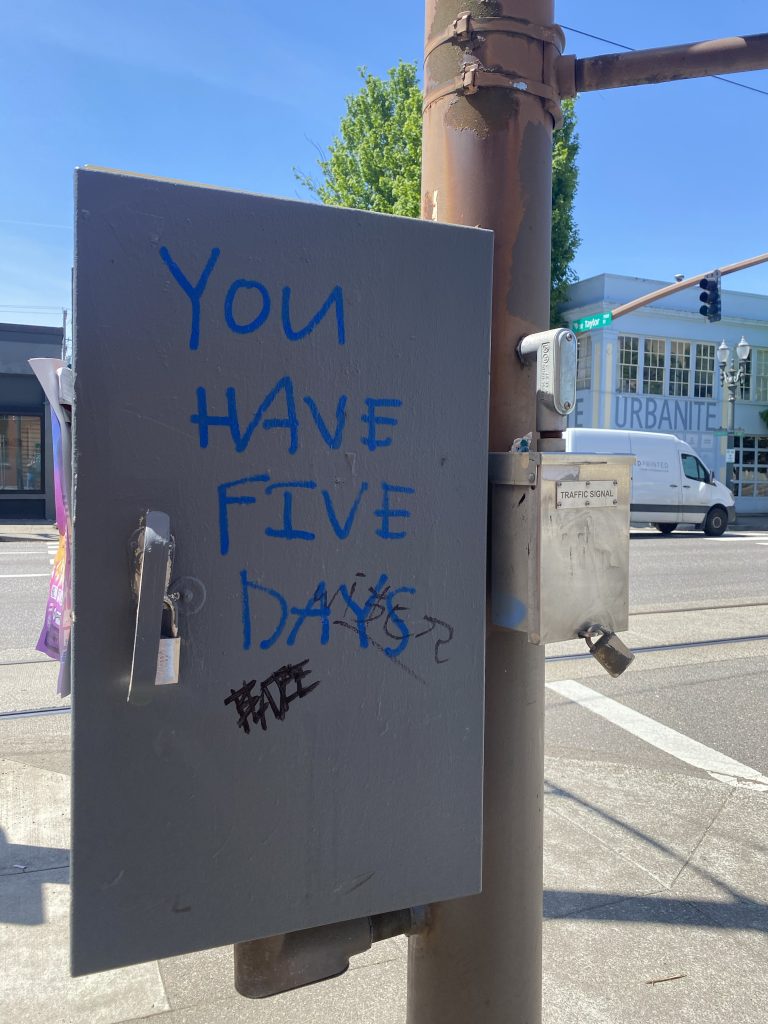
Come with me. I’ll tell you a little about what happened on my journey through Stumptown. And, where I have it wrong, let me know. I want to know more about this strange, strange place.
Update 5/17/23: This is meant to be a living document. As I learn things that I have mentioned that are proven to be false, misleading, inaccurate, or need further extrapolation, that information will be updated with a notation like this one.
Portlandia Got It Exactly Wrong (or, What It Had Right Aged Incredibly Poorly)
The dream of the nineties is not alive in Portland. I’m not seeing people in their twenties retiring, no one is clowning, and people are definitely not sleeping until eleven o’clock. The city seems to be set to hustle o’clock in downtown, and failure to hustle has caused a massive amount of social collapse into some pretty dark corners. Ironically, Carrie Brownstein is accused by Fred Armisen of being a little too San Francisco in the first episode of Portlandia – but the city reminds me exactly of San Francisco in ways both good and bad.
Because, for all of the vibrancy of people who are unabashedly themselves and proud, and regardless of the artistic passion and uniqueness of its people as portrayed in the show to comedic effect, the city of Portland has a deep and systemic struggle with poverty. I could make an argument that all American cities struggle. Portland, however, is like nothing I’ve ever seen before save for pre-Covid San Francisco (which I’m told has only slid further into chaos). This city has it bad.
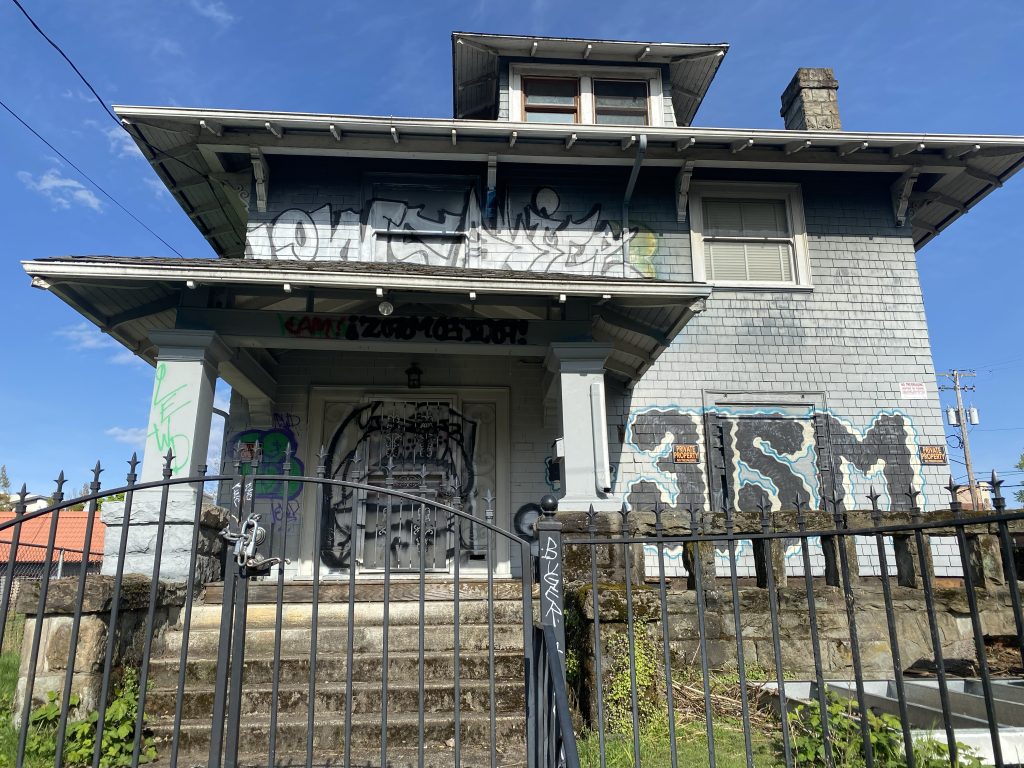
The walking wounded are everywhere in Portland, living in ragged tents on sidewalks, sleeping in alcoves, wheeling carts full of cast-offs, and hauling trash bags as tall as they are filled with recyclable cans. Mental illness is endemic among the unhoused as well, and I see the unfortunately familiar faces of methamphetamine, heroin, and fentanyl on so many of the abandoned humans of the City of Roses. Burglary and robbery are common, even out in the suburbs I visited. People with no other recourse have turned to acts of desperation and need.
I fear these are the people of Portlandia who were retired at twenty-five. Not by choice, but by a system and culture that deeply failed them here, not because they were slackers, minimalist artisans putting birds on things, or tech moguls. Something outside of themselves retired them. Trauma. Addiction. Dumb fate or one wrong choice. They’re humans, like you and me. They deserve better. A few locals have pointed out how most of the people here interact with the unhoused, and I can confirm it’s true that most regard the unhoused with utter contempt, especially if they interrupt their daily facade of normalcy.
Case in point: I was on the Tri-Max Red Line on my second day exploring Portland, and an unhoused man had an incident in which he was freely bleeding. I kept calm while I gauged whether or not he was going to freak out. He didn’t, but gave a little moan and made his way to a clump of cyclists just past me. He asked them for something to clean up with, napkins, anything. All he had was his own shirt to staunch the flow. I didn’t have anything and wasn’t in a position to assist, but the three men rebuffed him at first. They told him to get away, that it was inappropriate what he was doing. It was then that I saw the wounds were from cutting. He had at least three more identical horizontal, perpendicular cuts along the tattoos of his inner arm, and he’d either just made a new one, or broken open a scab as he was claiming to the cyclists. Eventually, one of them gave him something, and the man left the train at the next stop, thanking them for the gauze or napkin that had been provided. From the time between that stop and the next – as one of them pulled out a small medical kit to sanitize the area – the men derided him. Said that if he was gonna cut himself, he ought to go all the way and just jump.
Welcome to Portland.
I’m sure this town isn’t the only place to foster cruelty like this. But it wasn’t a great impression, and my heart goes out to the folks here who are living in unimaginable poverty against the backdrop of what I keep hearing is the richest nation in the world.
Accessibility
I’m not a public transit guy. Not because I’m against the idea, mind you. It’s just that in my neck of the woods, it’s not worth a good goddamn. If you were to note that was because I live in a suburb that has two transit hubs – the state court and a shopping mall – you’d be right.
But, if I put you in my closest metropolitan area, you’d quickly realize it sucks there too. Buses and trains are frequently late. They still make you use physical tickets or tokens, often requiring exact change if they deign to let you use cash on demand. Its drivers are angry and have far too much schadenfreude than is healthy for a human being. The vehicles smell like piss and the slow death of dreams. The trolley system will make you hate all life, including your own, just by being near them. I will frequently walk or Uber or deal with the hassle of traffic and parking costs to avoid dealing with the transit system in that city.
Portland is 100% the opposite experience.
Despite the callous encounter I described on the trolley earlier, Portland’s Tri-Met trolleys are rarely crowded, generally quiet, on time, and easy as hell to use. I never once had to hail a cab or call a Lyft due to a delay or a crowded bus. I used the Red Line on day one from the airport having never used it before, and then quickly learned how to use the HOP system with my phone. If you use HOP twice in a day, you earn the right to use the transit system all day for a total of $5. Sure, there was always a little walking involved to get where I wanted to be, but nothing I couldn’t handle.
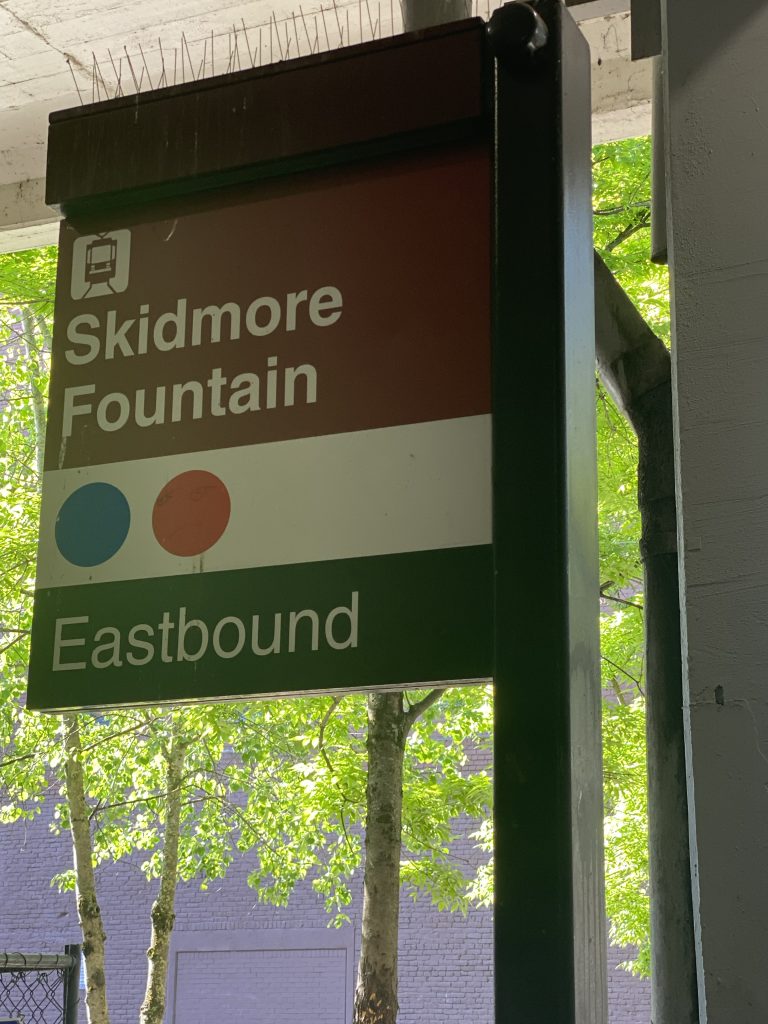
Additionally, if you can’t pay, no one stops you. The thinking goes along the lines that the city hopes most people pay, which from what I see on buses is absolutely true (maybe less so on trolleys as the drivers can’t directly see you board). Come to think of it, maybe my local metro has such a problem being on time because they argue with every person who is short a damned nickel for their ride or has nothing in their pockets.
Surprisingly Green and Clean
Unhoused populations are not new to me. Where I went to college, there were a lot of people living on the street. As such, you saw some shit. I mean this literally. You saw actual shit. Everywhere. I actually went to a Barnes & Noble once where someone had hidden part of a turd behind some books and then smeared the rest of it across the rest of the shelf. The city stank a lot of the time, even the downtown area which they tried to make look nice for the tourists. It’s a side effect of having a large unhoused population, and it’s difficult to avoid. Somehow… Portland seems to have managed it.
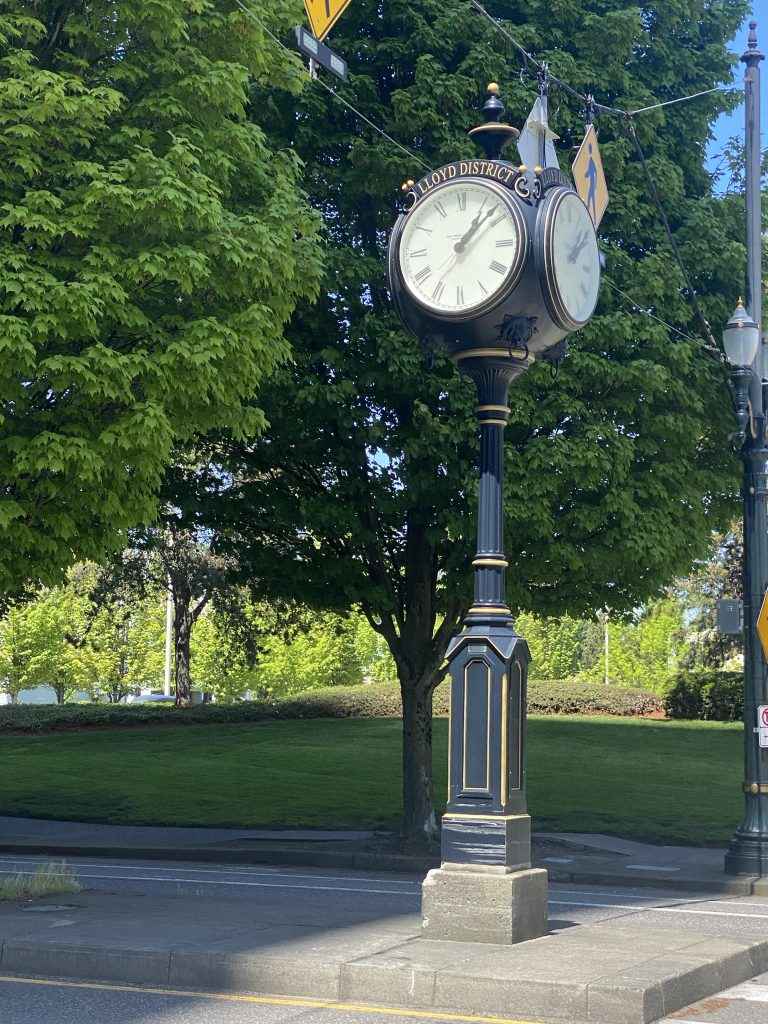
I can’t add tribute a why. I don’t see port-a-johns on the sidewalks like in San Francisco. Restrooms are locked down tight in almost every establishment around. Maybe the frequent rain has something to do with it, or regular street cleaning (which I did see a lot of). Or, perhaps it’s simply the amount of natural space around to absorb a lot of it. There is a lot of greenery around here. Some cities can boast parks or close natural getaways, but this place just has so much by way of nature compared to most other cities I’ve been to on top of just outside the city splendor.
Cops Versus Security
In most cities I go to, the rule of law is pretty obvious to see. Downtown (or any place adjacent to it), you’re likely to find cops. Their posture changes from metro to metro, but you’ll find them around, doing cop stuff for good or ill.
I can count on the fingers of one hand the number of actual cops I’ve seen in Portland. Same goes for police vehicles. Mostly, I saw them around the conference center, but beyond that… nothing.
What I have seen are security guards.
I’m not talking about rent-a-cops, the people you see at the mall wearing unsullied uniforms, carrying pepper spray, and a mandate to use strong language lest they be sued by someone they try to enforce a policy against. These security guys are not fucking around. They have guns and vests that I presume would stop a knife or a bullet. They’re not loaded down like SWAT, but they are prepared for tussles… in the places that pay them to, of course. Target. Barnes and Noble. Upscale hotels. I’m sure you’re seeing the pattern here. Not so much protecting people. Just businesses.
There seems to be an anti-cop sentiment here in Portland based on the street art if nothing else. ACAB graffiti isn’t exactly uncommon in the world at large, but you’ll find a lot of it here containing explicit messages about how the locals feel about their local PD’s mandate to serve and protect. Given all of the shit that went down here during the administration of president 45, I can’t say I’d blame them.
City of Bridges
There are a lot of bridges here. The Willamette isn’t a particularly broad river, so it stands to reason that whenever they feel like it, they can just put up another span if the taxpayers consent. If I’m counting right, there are eleven bridges, with some of them only for public transit, a luxury a lot of cities don’t get.
City of Books
I first became aware of the Mecca of independent American bookstores in my mid-twenties from a woman I was seeing at the time. She was a fan herself of the place, a store called Powell’s, the country’s largest independent used bookstore. I had ordered from them myself a few times before my trip, and the place had been on my bucket list for a while. It was a testament to my willpower as a bibliophile that I waited until the third day of my visit to get out to their W. Burnside St. location. Business had to come first, but once the convention I was attending was over… I went five times between two locations (and eventually caused a $100 overweight luggage fee at the airport).
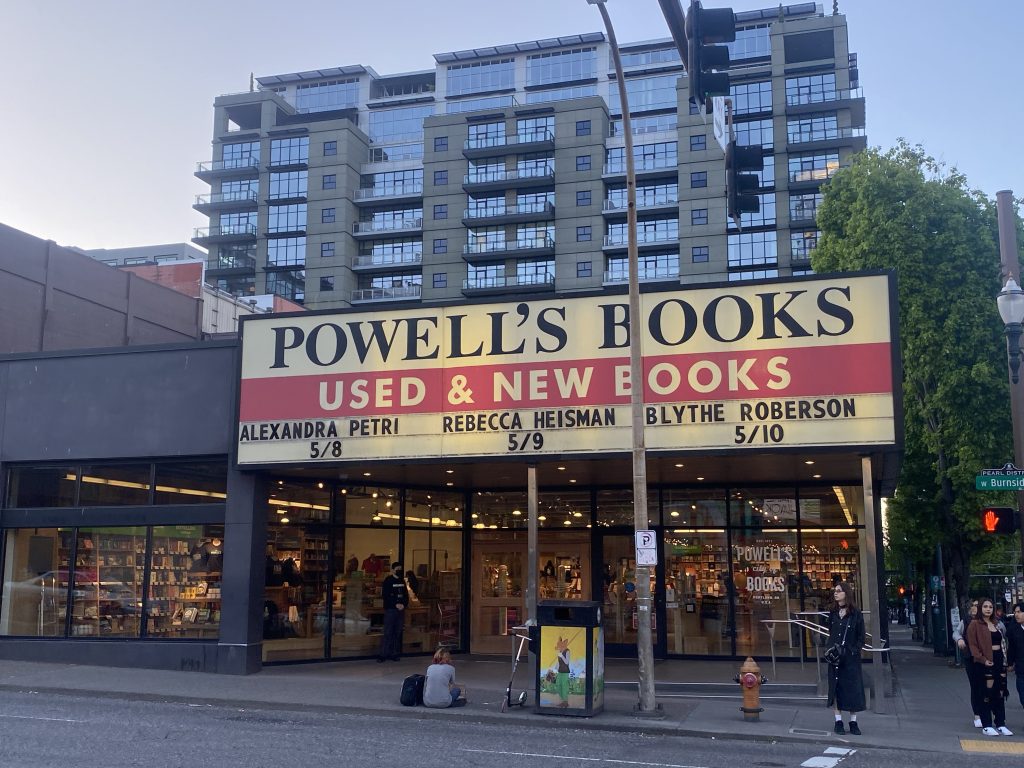
It was a bit of a mixed bag.
On the positive side, the store is, in fact, huge, occupying an entire city block with three full floors. You could spend a day in there and not properly get through all of the stuff you wanted to see. I really only plumbed the depths of two sections with any kind of rigor: RPGs and sci-fi/fantasy, but I did make my way through mythology, science, self-help, history, and social studies, making purchases across those sections as well.
There was, however, a lack of used books in the sense of actually used books. If you take the term ‘used books’ to mean marked down remaindered books that were once in wholly other stores elsewhere as used, then yes – there were used books aplenty. And, yes, I did buy quite a few.
However, I was hoping for more books that had been on local Oregonian shelves, hopefully by Oregonian locals. Perhaps it was the sections I trafficked. Maybe mystery, or sports, or romance does more trade here in Rip City when it comes to pre-owned books. Or, maybe they’re just picky about trades. Either way, I’m not going to knock a cavernous, independent, used bookstore.
Except, I will. Just a little.
The East Portland location, which I visited on my last day, actually had a not-quite-a-strike happening there. The store apparently is having a labor issue with its union. Yes – there is a bookstore out there with a union (I wish the bookstores I worked at previously had unions). The company apparently has opted to offer sub-par health insurance and has opted to keep wages low in the face of inflation. The union wasn’t asking for a boycott, but rather for solidarity from the customers who keep the store they both love open. So, I tossed them some money for their strike fund and signed their petition.
Give ‘em hell, guys. I hope you get what you need to keep the store going and to keep yourselves going. I know first-hand that being a bookseller is hard.
Awesome Food, and I Guess You Can Drink Here (If You Like IPAs)
My chosen metro close to home is a foodie kind of place, and very particular about the local dishes and how things are done. We’re judgy and shitty and proud about it because we’re East Coast, type-a assholes. I’ve accepted this. We are who we are.
It’s not like that here, as far as I can tell. Portland has been an explosion of food, and the variety here has been nothing short of stunning. Like most Pacific Coast cities I’ve visited, Asian food here is just better. I’ve hit up several Ramen joints, but there’s also soul food, Mediterranean food, African food, crazy local foods (Voodoo Donuts, elephant ears, and waffle-on-a-stick), and an explosion of food carts around every corner.
If you’re a beer drinker… I hope you like IPAs, because it appears that’s all anyone brews or drinks in Portland. I’m assured that once you leave Portland proper this changes – lots of wines and alternate types of beers are out there and being made in Oregon. But, it’s been hard to find anything local in the metro area that isn’t an IPA. Given that my palate translates the flavor of IPAs more or less into dishwater, I’ll have to find something further afield next time I’m in town.
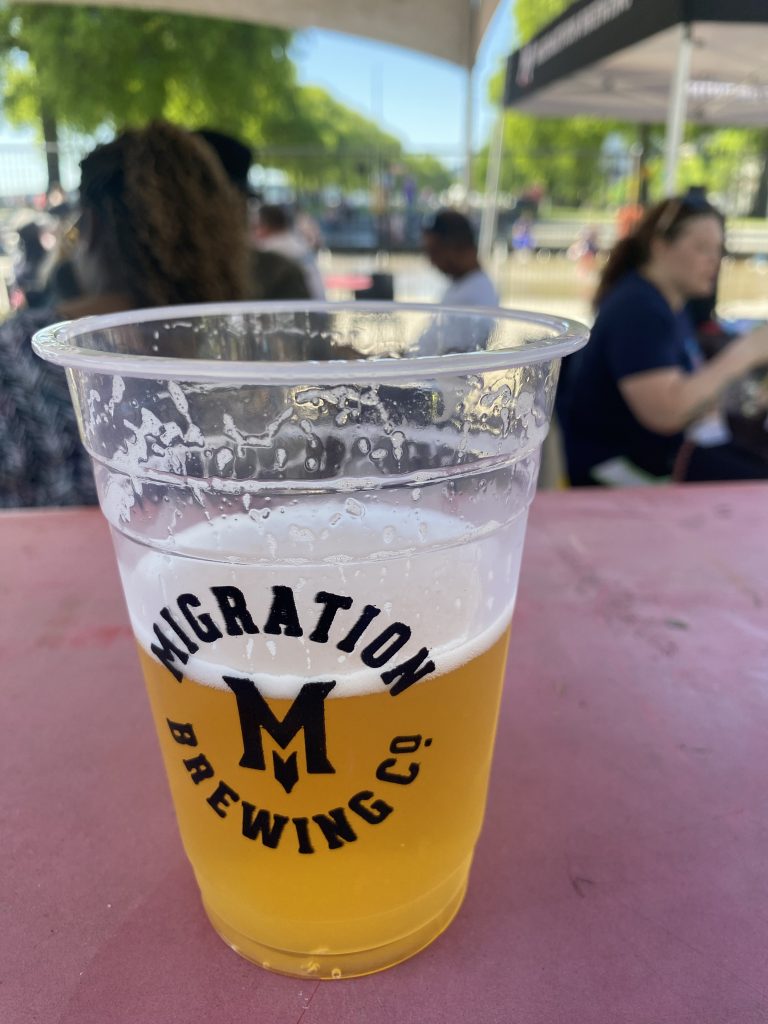
Surprisingly Familiar Flora
One of the things I like about travel is finding the little differences. While I did find many different things out here, including the proliferation of nature, the type of nature was surprisingly familiar. I found the same tree types out here as out East. Propeller seed pods, moss strands, monkey balls, and broccoli pollen (note: not a botanist) abounded here, and presumably, my allergies would be similar here as they would at home. Nothing triggered me here, so that line of logic would seem to bear out (ragweed season is three months away).
I know once I leave town proper that’s likely to change, but until I get to a wider swathe of Oregon, I can’t know.
Quality of Light
It apparently is not a California thing, but a Pacific Coast thing. Sunlight is just different here. I can’t explain it. Maybe it’s a difference in air quality. Maybe it’s an act of gods (or lack thereof). But, it’s brighter here. My seasonal hair lightening has gone into full effect about a month early, lightening from its winter chestnut to its summer straw tint.
And, it’s hot. Really hot, but not particularly humid. Unseasonably so from local reports. Damp and rainy is typically the order of the day for May in Portland. I apparently caught some of the sunniest days I could. Even if I hadn’t, I’m okay with the drizzly, serial-killer weather the region is known for. Bring on that fog!
An Oasis For Diversity
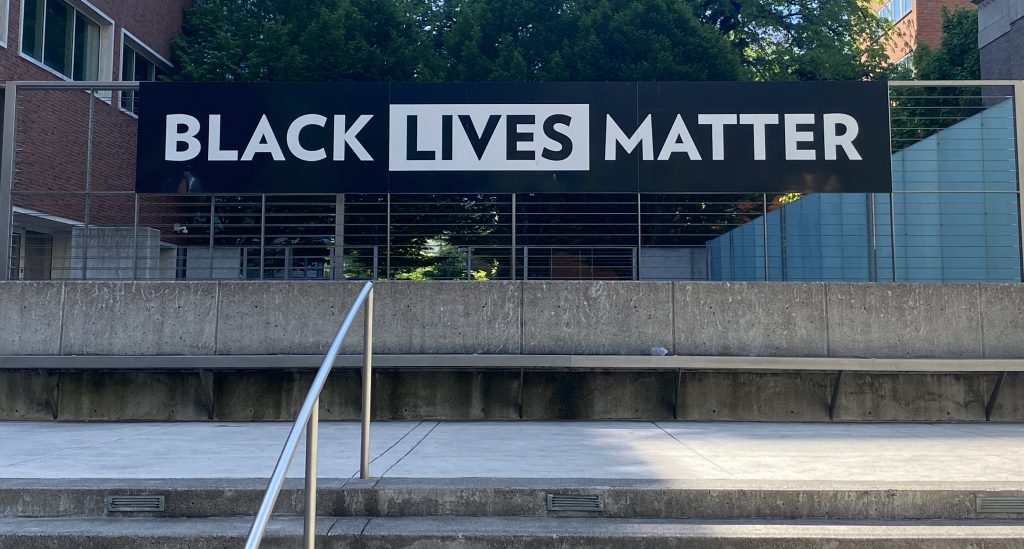
I had some concerns coming out here after watching the news out of Portland between 2016 and 2020. With Patriot Prayer, the Proud Boys, and other white nationalist/supremacy groups, plus the generally terrifying historical origins of Oregon, I was afraid I’d come to Portland only to find a sea of homogenous white people. I’m glad to find that I was wrong. I met and saw a lot of different people on my short trip, and found a regular show of solidarity for the Black Lives Matter movement. Thank the gods, not once did I run into a rally where there was somebody calling for Men’s Rights or where I saw billboards for the installation of White Jesus as the official god by Orange Jesus’s mandate.
I know better than to believe that it’s not here – racism is really good at hiding (because racists are basically fearful cowards at heart). By all accounts I’ve heard from locals, once you leave the larger, liberal cities of Oregon, it stops hiding completely, open carries, and leans in. It gives me pause when I think about this place as a possible new home.
Update 5/17/23: According to Wikipedia, Portland is one of the whitest major cities in America at 68% of the population. My usage of the word oasis in the sub-heading above is intentional. Portland is a small spot in a wide area. I’d go deeper into this topic if I could, were it not for two things: my inherent whiteness disqualifies me in many respects, and I am also not a native Oregonian. If you want more information on the terrifying problem of racism in Oregon, you can start here.
The Arts Come Alive Here
It was on my last day that I finally felt like I met the soul of Portland. I woke up early and got out to the Saturday Market and immediately fell in love.
The whole area is absolutely alive and pulsing with art, music, families, dreams, and beauty. I spent a good two hours just walking the vendor stalls, meeting artists, getting business cards, taking pictures, and soaking in the vibe. I was accosted by an older woman who shoved stickers into my hands and then told me that she was going to have to fine me for smiling in a no-smiling zone, but that it would be okay. The fines were voluntary, and in fact, were donations for charity. I’d have given her some cash if I hadn’t (no shit) given my last physical dollar to a guy playing the accordion at Skidmore Fountain. I found a local craft beer that wasn’t a goddamned IPA (a pilsner would have to do). I ate corndogs and pet actual dogs. I got gifts for people back home and saw things from TV in person like the deer sign and the Keep Portland Weird mural. I should have been fined multiple times for smiling in a no-smile zone. It was easily the best day of the whole trip.
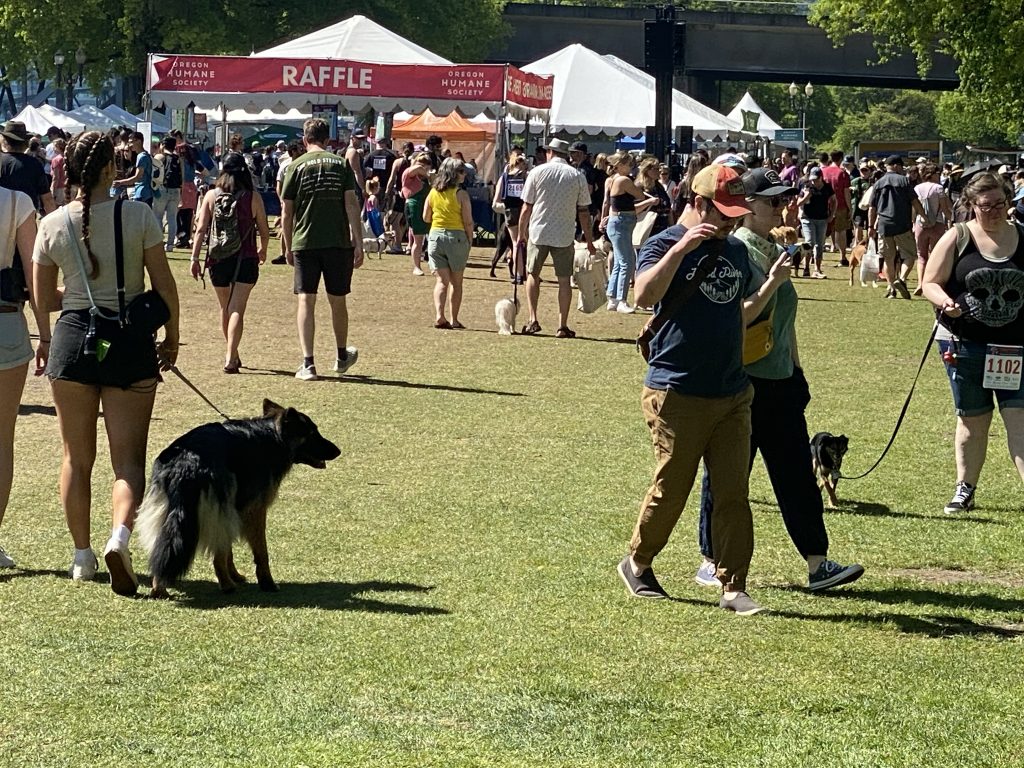
But… Could It Be Home?
You might have noticed above that I mentioned I had concerns about living in Oregon. And that’s because I do. Years back, my wife and I considered it: a move to Portland. We’d seen and heard so much about it on TV, then researched it, saw all of the unrest during the 45 administration, and heard about how it gets to be when you leave the cities.
I still have concerns. But, having been here in person… I have to say it has a charm. There are definite issues here, and that sickness I mentioned is unlikely to cure itself anytime soon. But, I can’t deny there’s still a pull here. There’s something about it.
I like it here. I’ll carry a little of the magic I found and bring it back to share with my wife. See if she’ll come out here with me for another scouting mission. Keep things weird with me.

